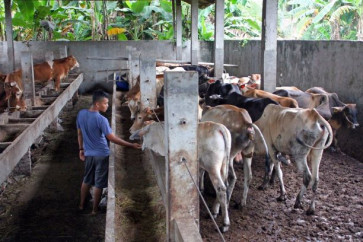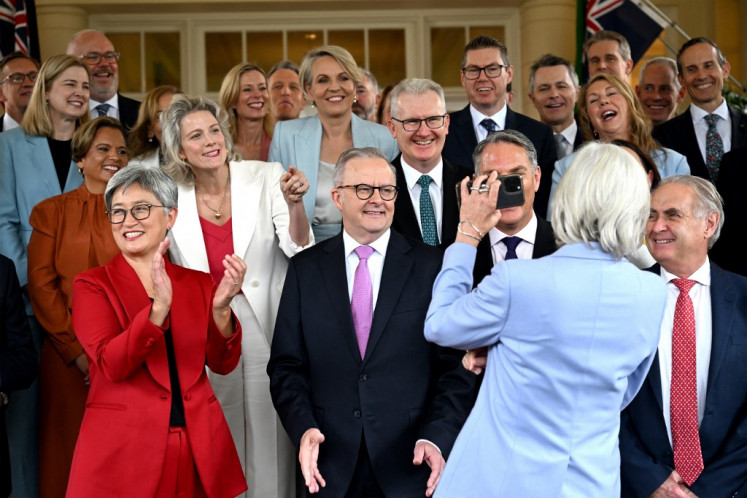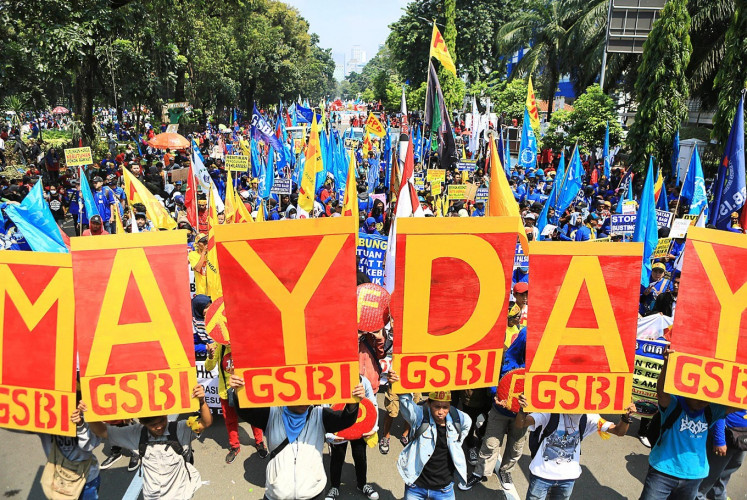RI should use Bandung conference to resolve conflicts
Indonesia should capitalize on the opportunity presented by the upcoming 60th anniversary of the Asian-African Conference to help mediate regional conflicts, including the South China Sea dispute, an expert said on Thursday
Change text size
Gift Premium Articles
to Anyone

I
ndonesia should capitalize on the opportunity presented by the upcoming 60th anniversary of the Asian-African Conference to help mediate regional conflicts, including the South China Sea dispute, an expert said on Thursday.
Arief Anshory Yusuf, a senior economics professor at state'run Padjadjaran University (Unpad), said conflict-resolution was high on the agenda of the first Bandung Asian-African conference, which was held in 1955.
'Indonesia should be active and encourage [better] relations among the countries. It would be useless if there were still mistrust among member-countries in the southern region [after the conference],' said Arief, who will speak at a discussion entitled 'Understanding South-South Cooperation and Impacts on People' at the Mochtar Kusumaatmadja at Unpad in Bandung.
On the Cabinet Secretariat's official website, President Joko 'Jokowi' Widodo said Indonesia was ready to assume the role of mediator in the South China Sea dispute, which has China competing principally with Vietnam, the Philippines, Cambodia and Brunei for sovereignty in contested waters.
Arief said security in the region was crucial to supporting economic growth.
In the 'South-South' cooperation, he said, Indonesia and other countries should involve China as a global economic power.
Strengthening cooperation between regional countries, he added, is crucial, as inequality continues to rise in Indonesia. According to one study, inequality has increased 24 percent in the country over the last decade alone.
'The rich become richer, while the poor become poorer, when it should be that high economic growth reduces poverty,' he added.
Another speaker Atip Latiful Hayat from Unpad's law school, said the government should continue the tradition established in the 1955 Asian-African Conference by providing more room for the public to participate in development.
'The spirit from Bandung is extraordinary. Promoting human rights principles is at the top of the priority list, but what about inequality?' Atip said.
He said the government needed to protect the channels available for citizens to demand and protect their rights.
Earlier, the Asian-African Conference Museum selected 650 volunteers from a pool of some 2,500 needed to support the many programs of the conference.
'They will be divided into 20 divisions,' said Asian-African Conference Museum spokesman Desmond Satria Andrian in Bandung on Wednesday. The volunteers are largely university students studying in the Bandung region.
___________________
'The rich become richer, while the poor become poorer, when it should be that high economic growth reduces poverty.'









